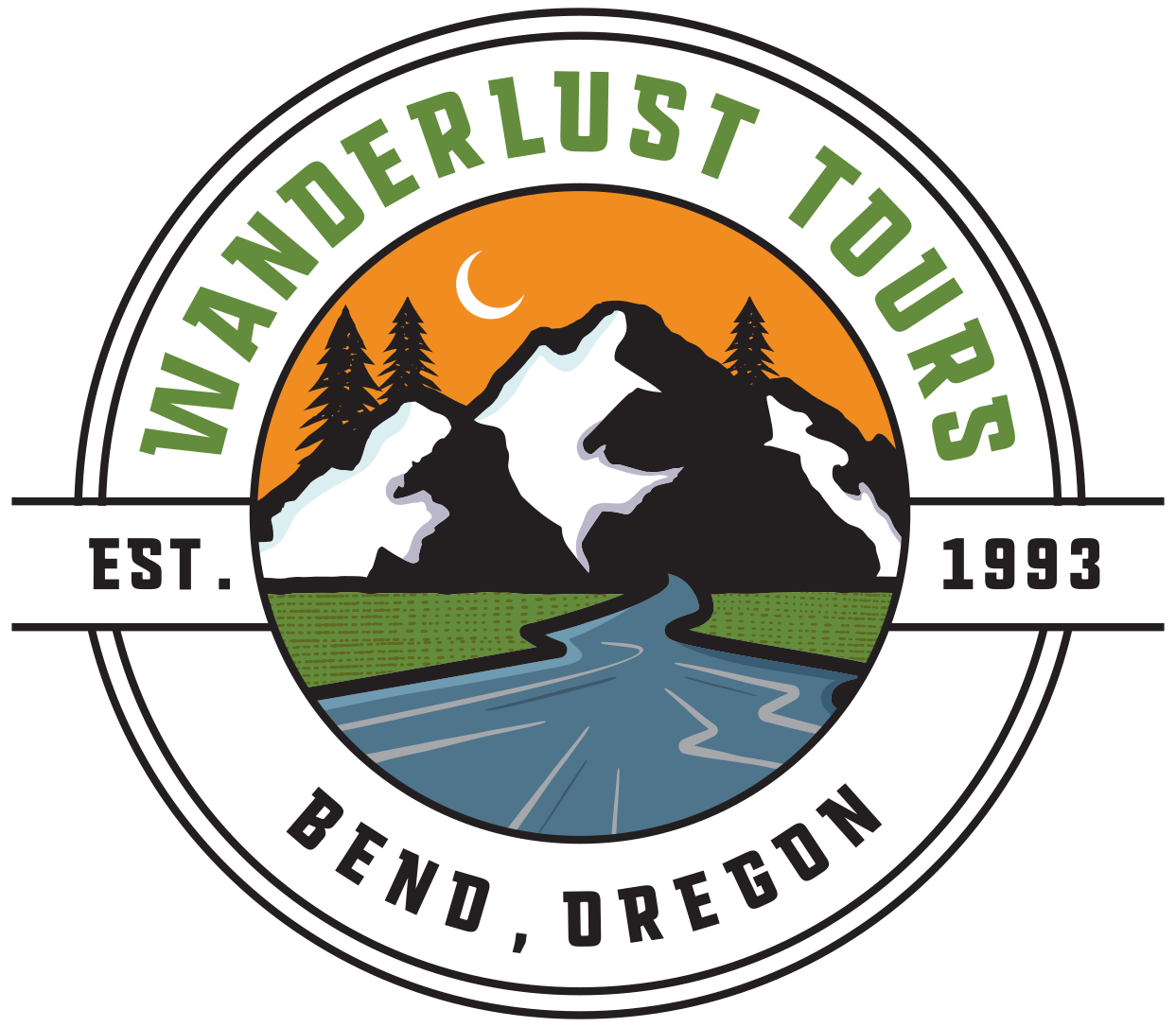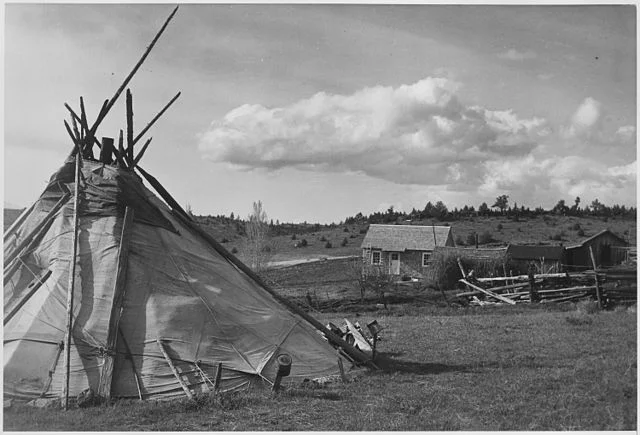Three women on the Warm Springs Reservation in 1910.
Photograph of a Warm Springs Brave, from the Smithsonian Museum
THE NEWCOMERS & THE NATIVES
In December 1843, John Fremont was leading an expedition of discovery through a wintry Oregon landscape. After traversing a particularly snowy ridge (which he aptly dubbed “Winter Ridge”), Fremont and his party found themselves stuck in high snow, unable to move quickly or keep warm. It was a dangerous and unfamiliar landscape for these explorers, but they pressed on, in order to learn the geography of their relatively new surroundings.
It’s widely agreed upon that, though brave, Fremont and his party likely wouldn’t have made it very far on their subsequent journeys had they not had a chance encounter with a few hunters from the Northern Paiute tribe. You can imagine the scene: the Europeans attempting to conquer their unfamiliar surroundings, and the native people happening upon a (likely comical) scene of immense effort. Luckily, the Northern Paiute hunters shared a simple, elegant solution for traveling by foot in the winter: snowshoes!
This is just one anecdote revealing how early American pioneers relied on the native people to survive in the West, learning from them and adopting their skills and habits.
An old photo of the reservation, dated 1910.
Official logo of the Confederated Tribes of Warm Springs
WARM SPRINGS
Today, we’re talking about an important link to the long history of Central Oregon: the Confederated Tribes of Warm Springs. The Confederation consists of the Northern Paiute, the Wasco, and Warm Springs tribes.
The current Confederation was officially formed in 1938. Today, the enrolled membership of all three tribes totals over 5,000. Over 3,000 enrolled tribal members reside on the Warm Springs reservation, which contains the tribal headquarters.
Location of the Warm Springs Reservation in relation to the lands the tribes used to occupy before white settles uprooted their people. Image courtesy of the Columbia River Inter-Tribal Fish Commission.
1855
1855 was a landmark year for the relationship between the United States government and Native Americans in the Northwest. That year, the US government presented treaties to several tribal leaders in the Northwest, most with terms that significantly reduced the rights and lands of the native people.
Among these are the Treaty of Washington (which affected the Chippewa, Wyandot, Chicksaw, Winnebago, and Choctaw tribes), and the Treaty of Point Elliot (signed by Chief Seattle and members from the Duwamish, Suquamish, Snoqualmie, Snohomish, Lummi, Skagit, and Swinomish tribes).
Warm Springs and Wasco tribes treated with United States in the Treaty with the Tribes of Middle Oregon, officially ceding 10 million acres of native-occupied lands to the United States.
WARM SPRINGS TODAY
The Warm Springs Reservation encompasses 1,019 square miles (640,000 acres), and is bordered by Mt. Jefferson, the Deschutes River from west to east, the Mutton Mountains, and the Metolius River from north to south. The reservation lies primarily in parts of Wasco and Jefferson County, but small parts fall into six other counties.
One of the main tourist attractions in Warm Springs is the Indian Head Casino.
We recommend stopping by the Museum at Warm Springs for a deeper experience of the history, art, and culture of the Warm Springs people.
The High Desert Museum will also have an excellent exhibit through January 20, 2019 called By Her Hand: Native American Women, Their Art, and the Photographs of Edward S. Curtis. Curtis was a prolific photographer of the native people in the Pacific Northwest, and a great many Warm Springs tribal members are included in his portraits.
Today, Warm Springs regularly hosts events celebrating the culture and heritage of the Warm Springs people. These are very special events, with music, dancing, and rituals passed down from generation to generation. You can check out the Warm Spring website, and like their Facebook page to be kept in the loop!







